Biomedicum
Office closed
The office and the dean's office of the School VI Medicine and Health Sciences are from December 22, 2025 to January 2, 2026 inclusive not occupied.
Contact
Dean´s Office
Dean of Studies Office
Opening hours Office of the Dean of Studies
Anschrift
Postal address
University of Oldenburg
School VI Medicine and Health Sciences
Ammerländer Heerstraße 114-118
26129 Oldenburg
Visitor address
Building V03, 3rd floor, wing M
Ammerländer Heerstraße 138
26129 Oldenburg
Biomedicum
Biomedicum
Biomedical Centre of Competence University Oldenburg
Biomedical research increasingly depends on cutting-edge research infrastructure and highly competent research expertise in different disciplines. The BIOMEDICUM of the University of Oldenburg provides a research portal to all scientists of the faculty of Medicine and Health Science. Its major aim is to give an overview of existing research infrastructure and expertise across all relevant disciplines. Furthermore, it provides important contact addresses. Note that the BIOMEDICUM is still in the process of being build up. Some of the research equipment is therefore already part of established core facilities, e.g. microscopy or the consulting center for trials with patient involvement. In contrast, other high-end research platforms are offered by individual groups on a collaborative basis. These groups also offer their competence and know-how in planning research projects in the respective field.
Biobanking (Core Facility)
With the aim of setting up research cooperations, the storage and management of blood samples and tissue at +4°C, -20°C, -80°C und -180°C (liquid nitrogen) can be arranged after prior agreement with the facility.
Contact person:
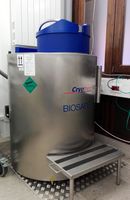
Cell Sorting und Flow Cytometry (Core Facility)
...
Microscopy (Core Facility)
Fluorescence microscopy service unit
The Fluorescence Microscopy Core Facility provides several high-resolution confocal laser scanning microscopes. All systems contain several lasers with different excitation wavelengths so that stained tissue or cell cultures can be imaged microscopically. With the help of a deconvolution workstation (Huygens), the depth of field of the microscopic images or image stacks can be further improved and displayed in higher resolution.
Available are a Zeiss Axio Scan Z1 slide scanner (high throughput screening), a Leica TCS SP5 II microscope (confocal microscope with additional superresolution STED module), a Leica TCS SP8 microscope (confocal microscope) and an Olympus FV3000 (confocal microscope ) with an incubator for LiveCellImaging and an additional upgrade of Picoquant for measuring local fluorescence lifetimes and detecting protein-protein interactions.
Contact person:
Electron and Light Microscopy Service Unit
The Electron Microscopy Service Unit operates two transmission electron microscopes (Zeiss EM902A, Jeol2100F) and one scanning electron microscope (Hitachi S3200N). Furthermore, a coating device (C, Au, Pt), a critical point drying device and two ultramicrotomes are available for sample preparation.
Contact person:
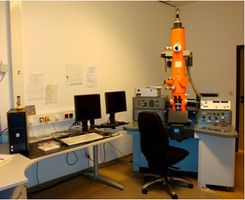
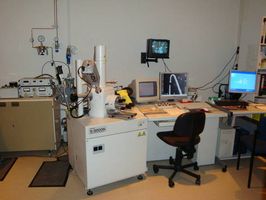
Molecular biology and immunohistochemistry
Contact person:
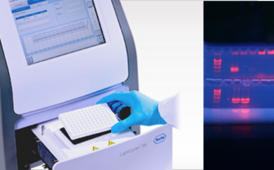
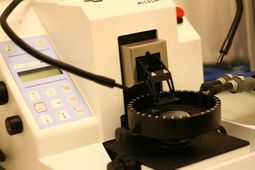
Neuroimaging Unit (Core Facility)
The Neuroimaging Center houses a Siemens 3 Tesla magnetic resonance imaging (MRI) system as well as a magnetoencephalography (MEG) system, exclusively dedicated to research. These core facilities are financed via the European Medical School, the Cluster of Excellence as well as the German Research Foundation (DFG). Equipped with a MR compatible electroencephalography (EEG) system, different response pads, various systems for auditory stimulation and motion capturing we are able to investigate brain mechanisms involved in sensory, motor and cognitive functions.
Contact person: Prof. Dr. Jochem Rieger
E-Mail: jochem.rieger@uol.de
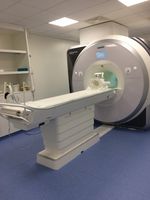
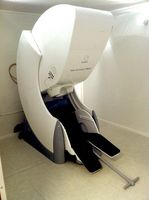
Next Generation Sequencing (Core Facility)
We offer to support your genome, exome und transcriptome sequencing after prior agreement with the facility and with the aim of setting up cooperations. We also offer to discuss tips and tricks for bioinformatic high throughput data analysis.
Contact person:
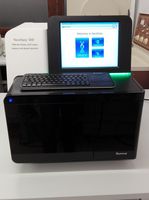
Proteomics platform
The proteomics platform is available for use within collaborations.
Contact person:
Radiation safety and isotope laboratory (Core Facility)
Contact person: Dr. Anna-Maria Hartmann
E-Mail: anna.maria.hartmann@uol.de
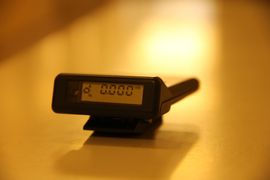
Scientific computing (Core Facility)
The high performance computing system (HPC-Cluster) CARL is available to all research groups of the university for scientific computing. The Cluster comprises of approximately 330 compute nodes, 7.600 cores and has a theoretical peak performance of 270 TFlop/s. The various compute nodes configurations (CPU, RAM and local I/O, GPU) allow a wide variety of computing requirements to be met. The HPC-Cluster can be used for serial and parallel applications. It also includes various data storage systems with several 100TB total capacity as a service offered by the university IT services.
Contact person:
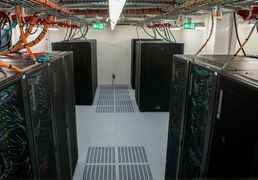
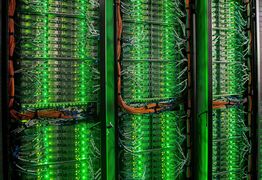
Biometric advice
Biometrical consulting service
For biometric advice, researchers can contact the Biometrics Service Center.
This center works closely with the KKS (clinical studies) of Faculty VI.
